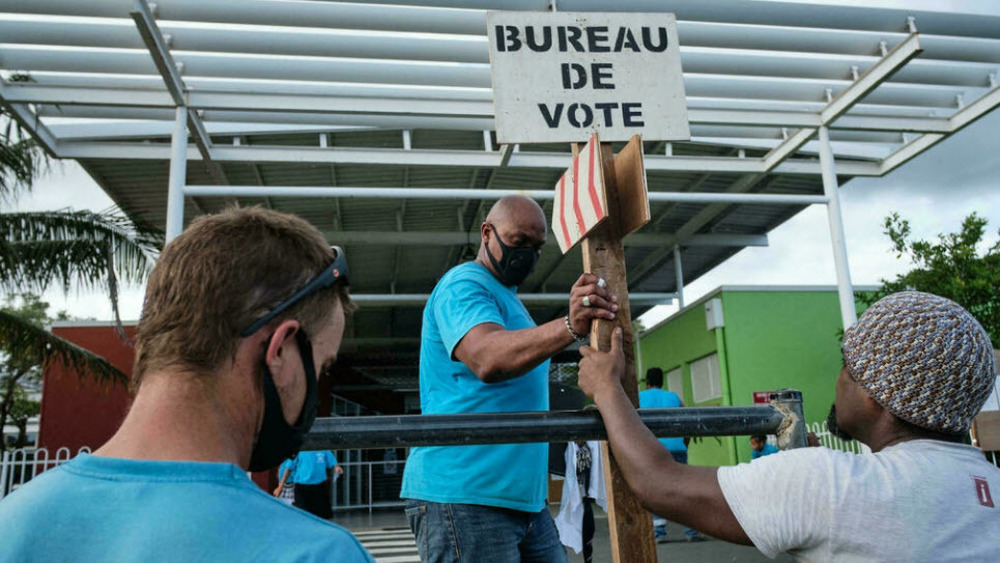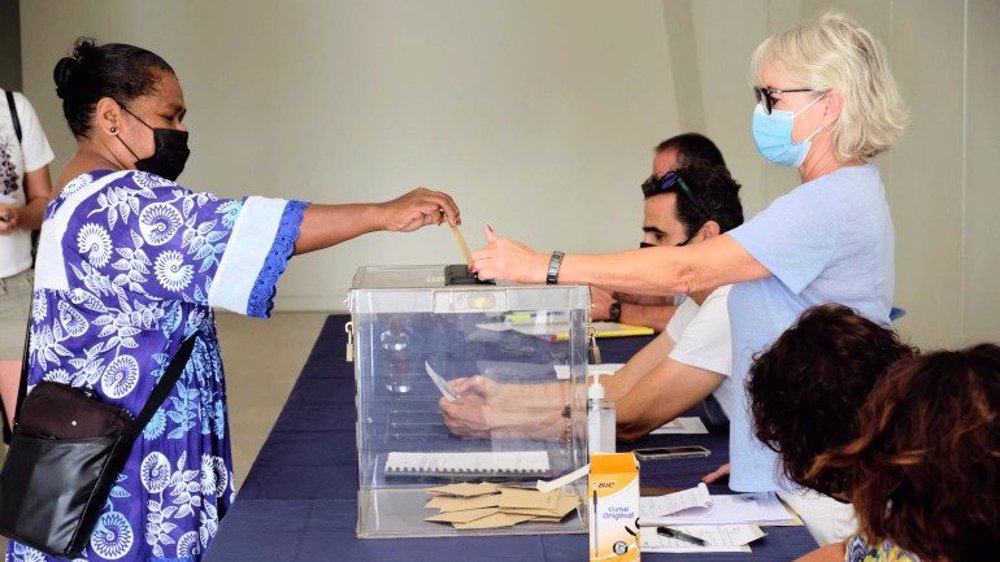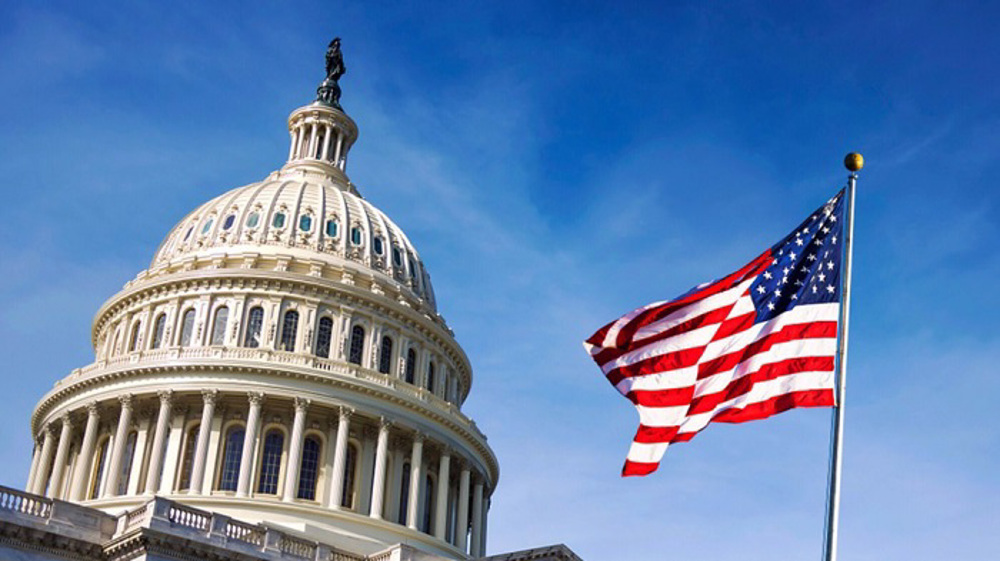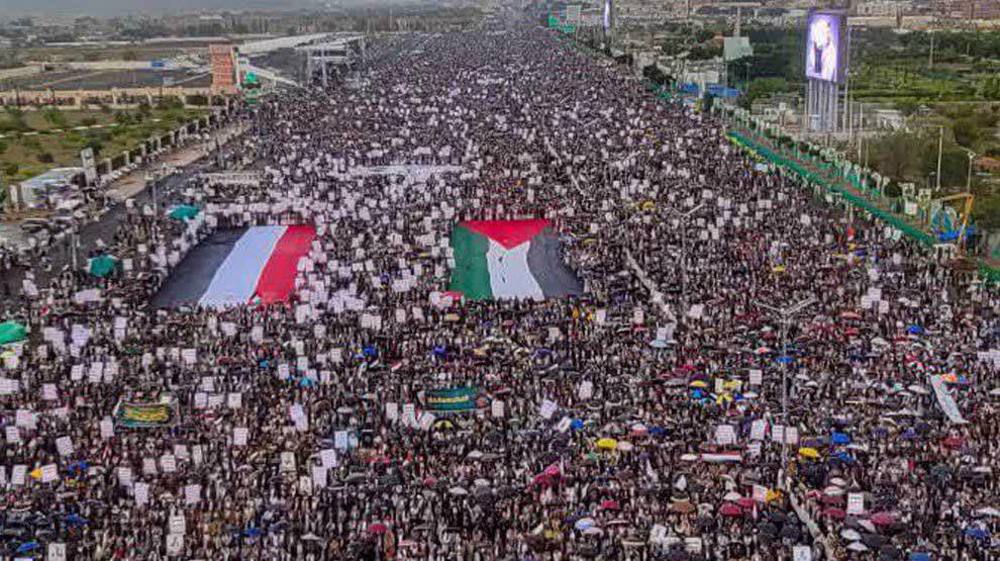Over 96% vote against New Caledonia's independence from France
People in the South Pacific archipelago of New Caledonia have voted overwhelmingly against full independence from France in the third and final referendum on the issue, a result that could raise fears of unrest and exacerbate ethnic tensions in the tiny island.
Final results from the territory’s high commission showed on Sunday that 96.49 percent of voters have rejected breaking away from France, while only 3.51 percent were in favor. Turnout was only 43.90 percent, and it was particularly low in areas where the majority of indigenous Kanaks, who support independence, live.
Polls opened across the 2,000-kilometer territory in the east of Australia at 7:00 a.m. local time (2000 GMT) on Saturday and were closed at 6:00 p.m. local time (0500 GMT) on Sunday. The results were announced a few hours after all ballots were counted.
The referendum was marred by a boycott from the main independence parties who said the coronavirus pandemic prevented “a fair campaign” and wanted it postponed. The French government has rejected the demands.
New Caledonia's 270,000 inhabitants were largely spared during the pandemic's first phase but have suffered close to 300 COVID-19 deaths since the appearance of the Delta variant.
The Kanak and Socialist National Liberation Front (FLNKS), the island’s main indigenous pro-independence movement, had called the government's insistence on going ahead with the referendum "a declaration of war."
Around 2,000 police and troops were sent to the nickel-rich territory amid fears that a ‘no’ vote would infuriate those who support independence and stoke instability in the tiny island.
"This referendum does not make too much sense because half the population has decided not to vote," Cathy, a bookseller who gave only her first name, told AFP at a polling booth in the capital Noumea. "I came out of civic-mindedness, what interests me is the society we are going to build afterwards," she added.
New Caledonia is one of the five French territories in the Indo-Pacific and the centerpiece of President Emmanuel Macron’s plan to expand French influence in the region.
The territory is home to 269,000 people, 39 percent of whom are indigenous Melanesians, known locally as Kanaks. Europeans make up 27 percent with other minority groups including Wallisians, Polynesians and Indonesians.
The island was granted three independence referendums under a 1988 deal aimed at easing simmering tensions between supporters of independence and those who want to stay French. The two previous polls were held in 2018 and 2020 respectively. Another referendum is expected by June 2023 which will determine the "project" people in New Caledonia want to pursue.
The pro-independence movement has threatened not to recognize Sunday's result and has vowed to appeal to the United Nations to get it cancelled.
The latest vote came against the backdrop of increasingly strained ties between France and its regional allies, with Paris regarding itself as a major Indo-Pacific player thanks to overseas territories such as New Caledonia. France is one of the world’s colonizing countries that still controls countries in more than 12 territories and treats their people as second-class citizens following decades of slavery.
Anti-French sentiments in former colonies have been a source of headache for Macron, the country's first leader born after the colonial era. The Caribbean territories of Guadeloupe and Martinique have recently been wracked by rioting and strikes that reflect long-running frustrations over inequality with the French mainland.
'Transition' to begin for New Caledonia after referendum: Macron
Meanwhile, Macron has hailed New Caledonia’s rejection of independence, saying "a period of transition" would begin for the overseas French territory after the majority of its people voted against independence. "Caledonians have chosen to remain French. They decided that freely," he said in a televised address on Sunday. "We can't ignore that the electorate remained deeply divided over the years. (...) A period of transition is now starting."
The president said “free from the binary choice of 'Yes' or 'No', we must now build a common project, while recognizing and respecting the dignity of everyone.”
“Tonight France is more beautiful because New Caledonia has decided to stay part of it.”
Macron has previously said he hopes that New Caledonia will remain in France, but that his government will not take sides in the referendum.
Gaza faces imminent famine as people starving to death: UN warns
North Korea to stand up to sanctions, bolster military power: Official
Hezbollah says 2,000 Israeli forces killed, injured in operations since Gaza war began
War of wills: Iran army chief vows crushing response to any aggression
April 24: ‘Axis of Resistance’ operations against Israeli occupation
Tabas sand defeats US military
'US secretly sent long-range ATACMS missiles to Ukraine in recent weeks'
Iran: Awakened world public opinion determined to stop Israel war crimes














 This makes it easy to access the Press TV website
This makes it easy to access the Press TV website